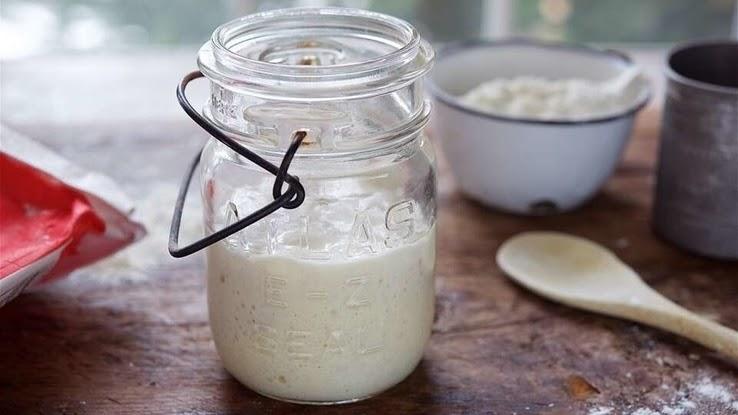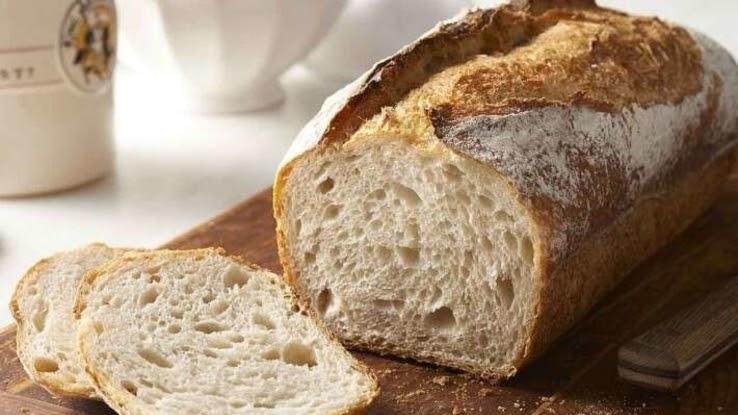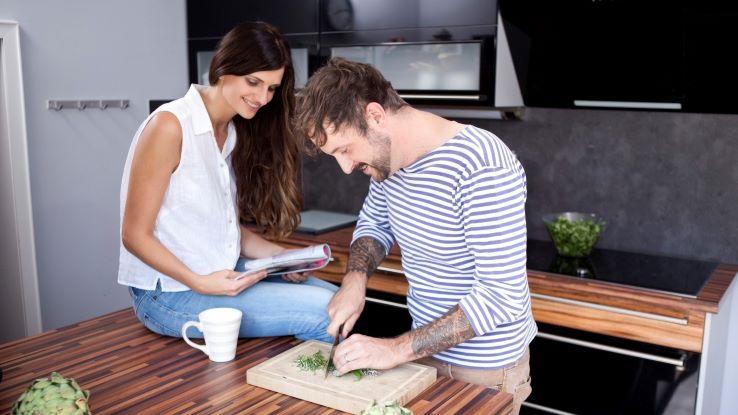Easy Soft Bread Recipe Using Yogurt for 1 Loaf

A good, crusty loaf of sourdough bread is deliciously tangy and good for everything from bread bowls and sandwiches to breadcrumbs for use in other recipes. While it's true that sourdough bread can seem intimidating if you're unfamiliar with preparing it, there are several tips that even new bakers can use to make the process manageable.
Part of the magic of sourdough bread is that it uses a slow fermentation process, which leads to its distinctive taste and perhaps even some health benefits. Some studies suggest that because of the lactic acid produced during the leavening process, sourdough bread causes blood sugar to rise less when eaten, making it a good choice for people with difficulty regulating their blood sugar. Sourdough may also help the body process the fiber and other nutrients found in many kinds of bread. Either way, the great taste of sourdough is beyond question, and with these easy recipes, your ability to make delicious sourdough bread will be, too.
Where most modern bread recipes call for baker's yeast, sourdough uses beneficial bacteria and wild yeast found naturally in bread flour to make itself rise in the oven. This method has been used at least since the days of the ancient Egyptians. The secret to beginning this process is called, rather fittingly, a starter: a sample of that lactic acid-producing bacteria and yeast that will get to work in your bread.

If you're new to baking, you'll probably just want to buy your starter at the store or even online. (If that's the case, feel free to skip ahead to the recipes.) You can also borrow some starter from a friend or family. In fact, some starters have been shared so often that they've lasted across centuries and even oceans. If you're looking to make your own starter, however, the process is fairly straightforward.
All you need to get started is flour (ideally rye or whole wheat), water and a nonreactive container, such as a canning jar, crock or stainless-steel container that can hold 1 quart or more. King Arthur Baking Company recommends combining whole wheat or pumpernickel flour with cool water. Stir them together, put a loose cover on the container and let the mixture sit on a counter at room temperature for 24 hours. Over the next few days, you'll end up periodically discarding some of the starter (which keeps the volume from getting excessive and keeps the yeast cells from competing with each other) and adding more flour and water as food for the yeast and helpful bacteria.
In theory, your starter should be ready in a week, but conditions can vary greatly. To ensure steady growth for your starter, try choosing a spot that's somewhat warmer than the rest of your house.
No-Knead Sourdough Bread
If you're looking for the easiest approach to making sourdough bread, a no-knead recipe is hands-down the one for you. If you've already bought or made your starter, you can complete this recipe with less than 30 minutes of prep time beforehand and no special equipment required, making this the ultimate beginner's recipe.

To make one large loaf, you'll mix bread flour, salt, lukewarm water and some of your sourdough starter in a large bowl. Once it forms a rough, sticky bread dough, lightly cover it with plastic wrap and let it rise for around 1 hour. Then, pick up the dough and fold it in on itself three or four times.
Put it back in the bowl, cover it and let it continue rising for an extra hour before repeating the process once more. After the third rise-fold-rise process, fold the dough once more before putting it in the refrigerator for eight to 48 hours. When you're ready to bake it, let it rest for around 15 minutes, shape it into whatever you're using to bake it in and let it warm inside that vessel for three hours to let the dough relax.
Easy Sourdough Artisan Bread
If you don't mind getting your hands (or a dough hook) dirty, you can also try this sourdough recipe. While a bit more complex than the previous one, it's still fairly beginner-friendly. All you need is your choice of whole wheat, white whole wheat or unbleached flour (or any combination of them), warm water, sourdough starter and some salt. Honey can help with coloration and make the yeast more energetic, but it's completely optional.

You'll start by mixing all ingredients together in a large mixing bowl or stand mixer. Once combined, let things sit for 15 minutes. Next use either a dough hook or your hands (which will take longer) to knead the dough. Add flour as needed to keep the dough tacky but not clinging to your fingers. Move the dough to a new bowl that's been coated in oil. You'll be letting it sit while periodically turning and folding the dough as it rises over the course of several hours. Eventually, you'll sprinkle the dough with flour and shape the dough into a ball or oval, after which you'll set it on a parchment-lined cookie sheet. There should be plenty of flour on top to make cutting the bread easier once it's done.
Now you're ready to heat things up. Instructions will vary based on whether or not you're using a Dutch oven, but either way, you'll have a bit of a wait ahead of you. (If you don't have a Dutch oven, you can put a pan of water on the bottom rack to create steam, which is essential for creating that classic sourdough crust.) Once the bread is done, you'll need to wait at least 30 minutes before slicing it.
Spicing Up Sourdough Bread — the Easy Way
If you feel like mixing things up with any sourdough recipe, there are a few easy ways to make even the simplest sourdough breads stand out from the crowd with a few extra ingredients, such as dried fruit, nuts, spices, sliced olives, rosemary or other finely chopped herbs. Mix-ins like these can transform the flavor profile of sourdough in all kinds of ways with very little extra work.

The important thing to keep in mind is that adding too many mix-ins to the dough will weigh it down and overpower the flavor. To ensure you don't overdo it, try weighing the bread dough and the extra ingredients beforehand. If the mix-ins weigh more than 20 percent of the dough, you'll need to tone things down. Similarly, you may have to reduce the amount of water in your dough if the extra ingredients you're adding are wet.
Source: https://www.symptomfind.com/nutrition-supplements/easiest-sourdough-bread-recipes?utm_content=params%3Ao%3D740013%26ad%3DdirN%26qo%3DserpIndex&ueid=b57c5350-a401-418e-93a0-c67cb09c9faf
0 Response to "Easy Soft Bread Recipe Using Yogurt for 1 Loaf"
Postar um comentário